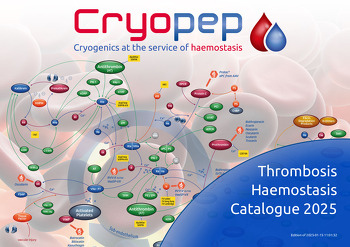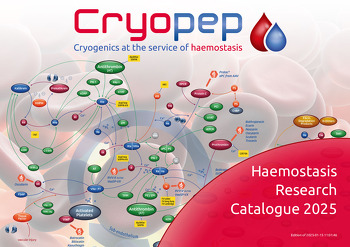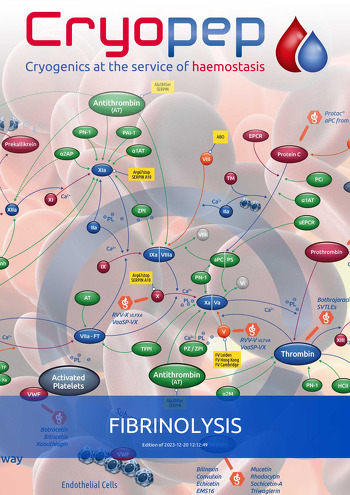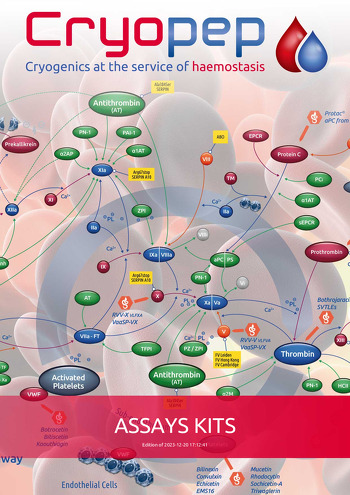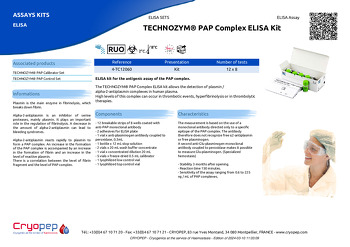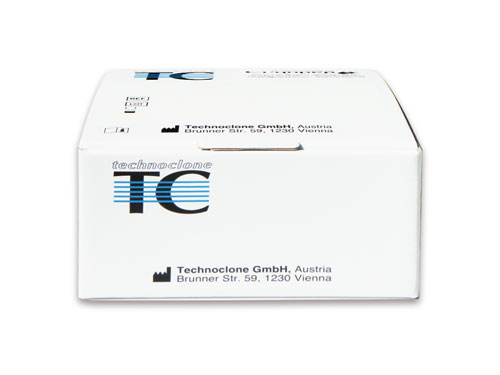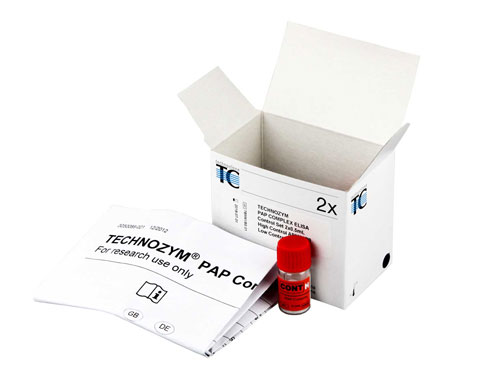HEMOSTASIS COAGULATION ROUTINE REAGENTS FIBRINOLYSIS PLASMIN ANTIPLASMIN COMPLEX
HEMOSTASIS COAGULATION RESEARCH REAGENTS ASSAYS KITS ELISA
TECHNOZYM® PAP Complex ELISA Kit
ELISA kit for the antigenic assay of the PAP complex.
The TECHNOZYM® PAP Complex ELISA kit allows the detection of plasmin / alpha-2-antiplasmin complexes in human plasma.
High levels of this complex can occur in thrombotic events, hyperfibrinolysis or in thrombolytic therapies.
Informations
Plasmin is the main enzyme in fibrinolysis, which breaks down fibrin.
Alpha-2-antiplasmin is an inhibitor of serine proteases, mainly plasmin. It plays an important role in the regulation of fibrinolysis. A decrease in the amount of alpha-2-antiplasmin can lead to bleeding syndromes.
Alpha-2-antiplasmin reacts rapidly to plasmin to form a PAP complex. An increase in the formation of the PAP complex is accompanied by an increase in the formation of fibrin and an increase in the level of reactive plasmin.
There is a correlation between the level of fibrin fragment and the level of PAP complex.
Documentation
Download the product sheetPrice list, safety data sheets and notices are accessible to our registered customers.
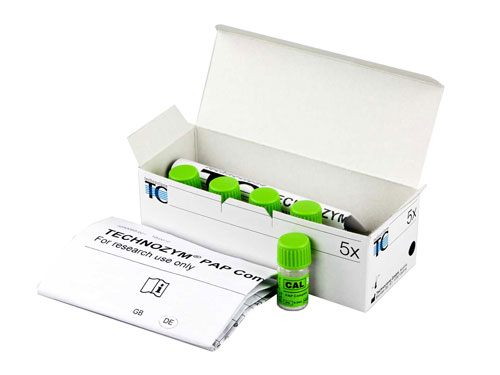
ELISA Assay






References
| 4-TC12060 | Kit | 12 x 8 tests |












